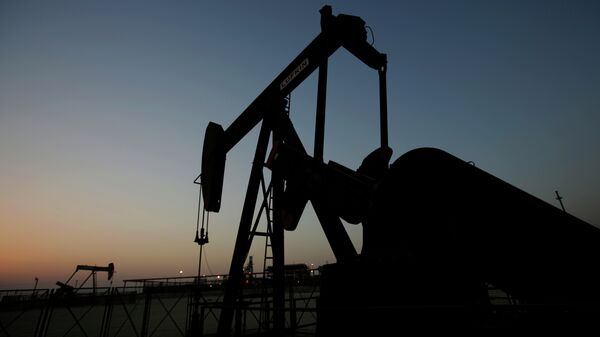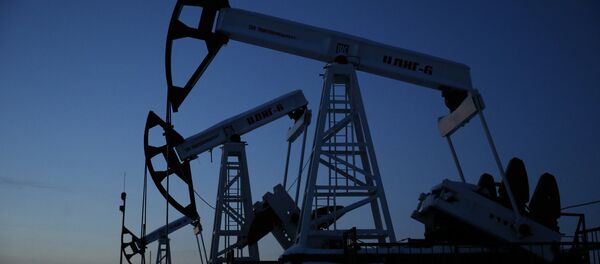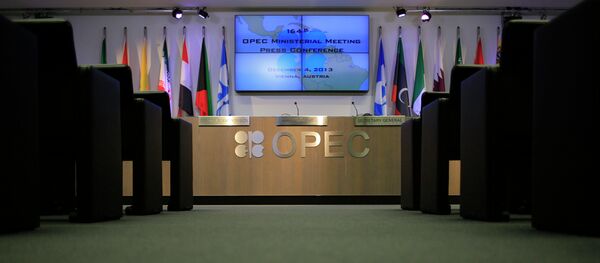MOSCOW (Sputnik) — On Tuesday, the energy ministers of several OPEC states, namely Saudi Arabia, Qatar and Venezuela held talks with Russia in the Qatari capital on the current oil market situation. The countries agreed to freeze their oil output at the January 2016 level if other oil producing states also sign up to the deal, the Russian Energy Ministry’s press service said.
Early on Tuesday, world prices for Brent oil rose to $35 per barrel on reports of the Doha meeting. However, later in the day, crude prices slowed from 6-percent growth to 2-percent growth, as reports emerged about the agreement to freeze extraction levels.
"The fact is, this decision is not aimed directly at reducing supply, but only at preventing its further growth. In the current macro-economic realities, the current level of supply is more than sufficient, in addition, substantial reserves of oil and petroleum products have been accumulated," Nordea Bank analyst Denis Davydov told RIA Novosti.
According to Davydov, the deal will most probably have a positive effect for Russia.
"Markets are now receiving a signal about where the so-called ‘bottom’ may be, or at least some understanding of what the key players would like it to be," Davydov added.
"Production [of oil] in Russia and Saudi Arabia is at historic highs and freezing production at current levels will not quickly solve the problem of excess supply in the market, which at 1.5-2 percent is putting pressure on prices," Porokhova told RIA Novosti.
According Porokhova, a decrease in production, not just fixing it at a certain level, is needed to stabilize the market.
"But in general, the meeting itself between Russian Energy Minister [Alexander Novak] and Saudi Petroleum Minister [Ali Naimi] is a very big step and an event for the market," she added.
The next ministerial meeting of OPEC and non-OPEC countries is set for June 2, where oil producing states will attempt to determine oil extraction quotas.



